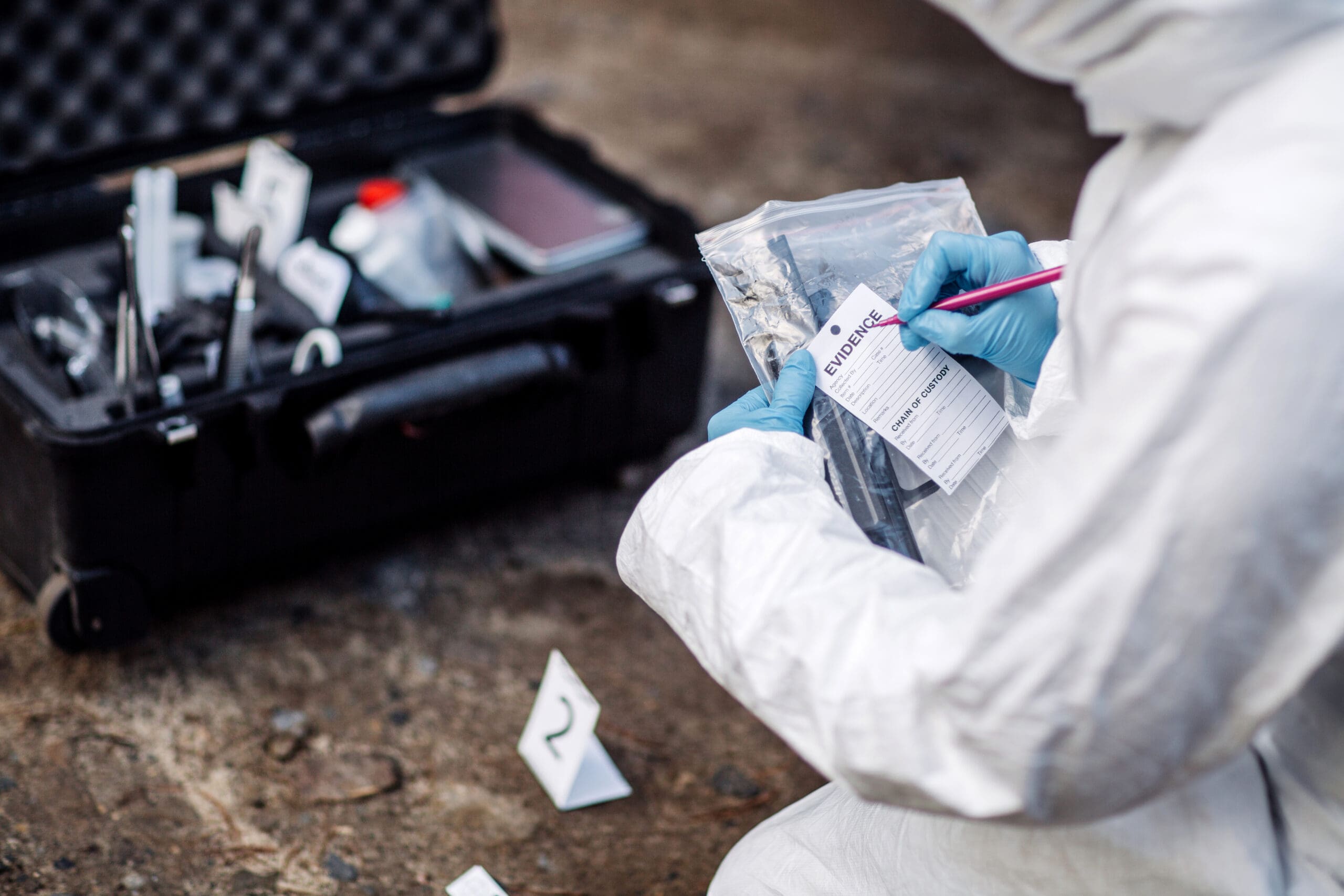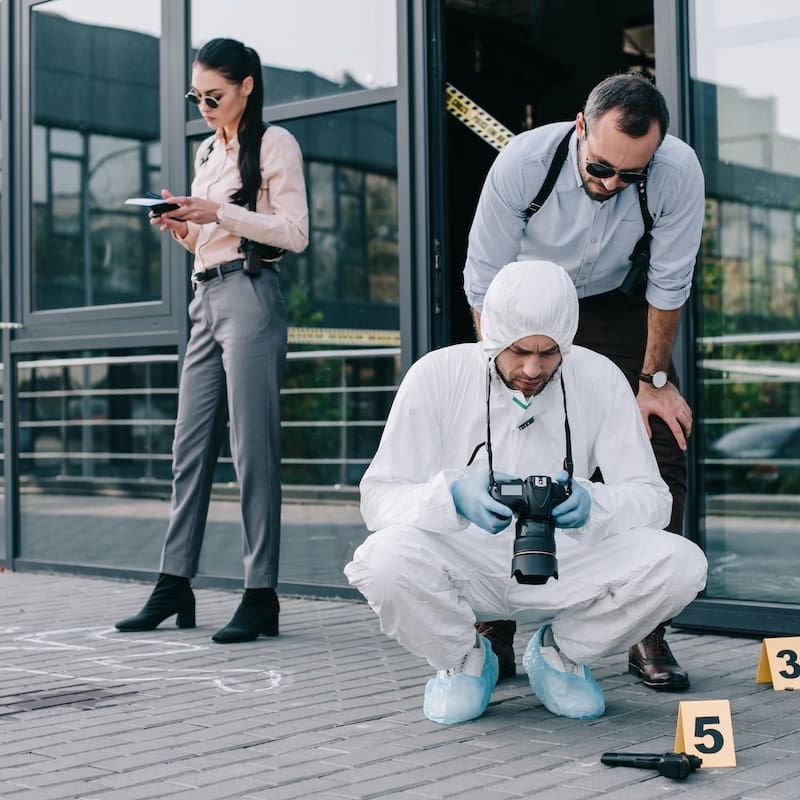How to become a Criminologist
Everything you need to know about becoming a Criminologist in 2025
If you have ever been captivated by the intricate workings of the criminal mind or found yourself fascinated by crime-solving dramas, a career as a criminologist might be your calling. Criminology is an engaging field that delves into the complex nature of crime, its causes, and its impact on society. As a criminologist, you have the unique opportunity to contribute to understanding and preventing criminal behaviour, ultimately making communities safer.
Embarking on this career path requires dedication and a keen interest in social sciences. It combines elements of psychology, sociology, and law to provide a comprehensive view of crime and justice systems. Whether you’re drawn to analysing data trends or working directly with law enforcement agencies, criminology offers diverse avenues for exploration.
To begin your journey towards becoming a criminologist, consider pursuing relevant educational qualifications such as a degree in criminology or related fields. Engaging with internships or volunteer opportunities can also provide invaluable practical experience. With determination and the right preparation, you can position yourself at the forefront of this intriguing discipline – ready to tackle some of society’s most pressing challenges head-on.
In this Criminologist career guide
What does a Criminologist do?
Criminologists play a pivotal role in understanding the complexities of crime and its impact on society. These dedicated professionals delve into the intricate web of criminal behaviour, seeking to unravel the motivations behind unlawful acts and their broader social implications. By analysing data, conducting research, and studying patterns, criminologists provide invaluable insights that help shape effective policies and strategies for crime prevention.
Their work extends beyond mere statistics; criminologists often engage with communities to understand the socio-economic factors contributing to criminal activity. They collaborate with law enforcement agencies, policymakers, and social services to develop comprehensive approaches that address both the symptoms and root causes of crime.
Through their expertise, criminologists contribute significantly to creating safer communities by advocating for evidence-based practices and interventions. Their findings not only inform public policy but also enhance our collective understanding of justice systems worldwide. For anyone passionate about making a tangible difference in society’s fight against crime, a career in criminology offers both challenges and rewards aplenty.
Responsibilities of a Criminologist
A criminologist plays a vital role in understanding and addressing crime within society. Their responsibilities are diverse and require a keen analytical mind, as well as a deep commitment to improving public safety. Here’s why the work of criminologists is indispensable:
Research and Analysis: Criminologists conduct thorough research to understand crime patterns, causes, and effects. By analysing data from various sources, they can identify trends that help in predicting future criminal behaviour.
Policy Development: Based on their findings, criminologists contribute to the development of policies aimed at crime prevention and rehabilitation. Their insights are crucial for creating effective strategies that address the root causes of criminal activity.
Criminal Profiling: In collaboration with law enforcement agencies, criminologists assist in profiling offenders by studying behavioural patterns. This helps in narrowing down suspects and solving crimes more efficiently.
Education and Advocacy: Educating the public about crime prevention methods is another key responsibility. Criminologists often engage with communities to raise awareness about social issues related to crime, advocating for changes that enhance community safety.
Consultation Services: Many criminologists offer their expertise as consultants for legal cases or governmental projects, providing valuable perspectives that aid in decision-making processes.
By fulfilling these responsibilities diligently, criminologists play an essential role in shaping safer societies through informed strategies and proactive measures against crime.

Skills needed to become a Criminologist
To thrive as a criminologist, one must possess a diverse set of skills that not only enhance understanding but also drive meaningful contributions to the field. Here’s a list of essential skills every aspiring criminologist should cultivate:
Analytical Skills: Criminologists must be adept at analysing complex data sets and identifying patterns that can inform criminal behaviour theories and prevention strategies.
Research Proficiency: A strong foundation in research methodologies is crucial. This includes both qualitative and quantitative research techniques to gather, evaluate, and interpret data effectively.
Critical Thinking: The ability to think critically allows criminologists to assess situations from multiple angles, challenge assumptions, and develop innovative solutions to crime-related issues.
Communication Skills: Whether writing reports or presenting findings, clear communication is vital for conveying insights to law enforcement agencies, policymakers, or the public.
Ethical Understanding: A keen sense of ethics helps criminologists navigate the moral complexities involved in studying crime and ensures respect for privacy and human rights.
Attention to Detail: Meticulous attention is required when examining evidence or compiling case studies, as even minor oversights can lead to significant errors in conclusions drawn.
Problem-Solving Abilities: Effective problem-solving skills enable criminologists to devise strategies that address both immediate concerns and long-term societal impacts of criminal activity.
By honing these skills, individuals can make significant contributions toward understanding crime dynamics and influencing positive change within communities.
What qualifications do Criminologist’s need?
When considering a career in criminology, it’s essential to understand the qualifications required to excel in this fascinating field. A solid educational foundation is paramount, typically starting with a bachelor’s degree in criminology, criminal justice, or a related discipline such as sociology or psychology. This undergraduate education provides the foundational knowledge necessary for understanding crime and its impact on society.
For those looking to advance further, pursuing a master’s degree can be highly beneficial. Postgraduate studies allow you to specialise in areas such as forensic psychology, criminal profiling, or crime prevention strategies. Such advanced qualifications not only enhance your expertise but also improve your prospects for higher-level positions within law enforcement agencies, research institutions, and academia.
In addition to formal education, practical experience is invaluable. Engaging in internships or volunteer work with local police departments or community organisations can provide hands-on experience that complements academic learning. Furthermore, developing strong analytical skills and an ability to think critically about complex issues are crucial attributes for any aspiring criminologist.
Professional certifications can also bolster your credentials. Organisations like the British Society of Criminology offer resources and networking opportunities that can support ongoing professional development.
In summary, while the path to becoming a criminologist requires dedication and rigorous study, the combination of academic qualifications and practical experience will equip you with the skills needed to make significant contributions to understanding and addressing crime within society.
Work environment and hours
Stepping into the world of criminology offers a unique and dynamic work environment that is as challenging as it is rewarding. Criminologists often find themselves working in diverse settings, from bustling police departments and government agencies to academic institutions and research think tanks. Each environment presents its own set of challenges and opportunities, allowing criminologists to apply their skills in various contexts.
The hours for a criminologist can be quite variable, reflecting the demands of their specific roles. For those involved in research or academic positions, a more traditional 9-to-5 schedule might be common, offering a degree of predictability. However, for those working directly with law enforcement or within forensic units, irregular hours are not uncommon. These professionals may be called upon outside standard working hours to consult on cases or provide insights that could prove crucial in ongoing investigations.
This flexibility in work environments and hours requires adaptability but also allows for significant professional growth and development. Whether analysing data trends to inform policy decisions or providing expert testimony in courtrooms, criminologists play an essential role in shaping the criminal justice landscape. Embracing this career means accepting its varied demands while also enjoying the profound impact one can have on society through dedicated service and insightful analysis.

How much do Criminologist’s earn?
When considering a career in criminology, one of the most pressing questions is often related to potential earnings. Understanding how much criminologists earn can provide valuable insight into the financial viability of this career path.
In the UK, criminologists’ salaries can vary significantly based on factors such as education, experience, and location. On average, entry-level positions may start around £23,000 to £30,000 per annum. However, as professionals gain experience and advance in their careers, they can expect their earnings to increase substantially. Senior roles or those within specialised areas of criminology can command salaries upwards of £40,000 to £60,000 a year.
Moreover, those who pursue further qualifications or take on roles in academia or consultancy may find even more lucrative opportunities. It’s important to note that while salary is a crucial consideration, many in the field are driven by a passion for understanding criminal behaviour and contributing positively to society.
Ultimately, pursuing a career in criminology not only offers competitive remuneration but also provides the opportunity for personal fulfilment through impactful work.
Types of roles for Criminologist’s
Criminology offers a diverse range of career paths, each providing unique opportunities to make a significant impact on society. One of the primary roles for criminologists is in law enforcement, where they apply their analytical skills to solve crimes and develop strategies for crime prevention. These professionals often work closely with police departments, helping to interpret data patterns and advising on policy development.
Another vital role is within the judicial system, where criminologists contribute as expert witnesses or advisors in court cases. Their insights into criminal behaviour and profiling can be pivotal in ensuring justice is served accurately and fairly.
For those interested in research, academic positions provide the chance to delve deeply into the causes and effects of crime. Criminologists in these roles conduct studies that influence public policy and aid in the development of new theories that shape our understanding of criminal activity.
Additionally, criminologists can find rewarding careers within correctional facilities, focusing on rehabilitation programmes that aim to reduce recidivism rates. By designing effective interventions, they play a crucial part in transforming offenders’ lives and enhancing community safety.
In all these roles, criminologists leverage their expertise to not only understand crime but also to foster environments where communities can thrive free from fear. Whether working directly with offenders or influencing policy at a governmental level, criminologists are essential players in creating safer societies for all.

Professional Development and Career Paths
In the ever-evolving field of criminology, professional development is not just an option but a necessity for those who wish to thrive and make a meaningful impact. As criminologists, the pursuit of continuous learning and skill enhancement opens up a myriad of career paths, each offering unique opportunities to contribute to our understanding of crime and justice.
One compelling avenue for professional growth is through specialised training programmes. These courses provide in-depth knowledge on emerging trends such as cybercrime, forensic psychology, or restorative justice. By engaging with these educational opportunities, criminologists can position themselves at the forefront of their field, ready to tackle contemporary challenges with innovative solutions.
Furthermore, networking within professional bodies offers invaluable connections that can lead to collaborative research projects or policy development roles. Engaging with peers through conferences and seminars not only broadens one’s perspective but also helps in staying updated with cutting-edge practices and methodologies.
For those looking to diversify their career trajectory, exploring interdisciplinary roles can be particularly rewarding. Criminologists have the analytical skills that are highly sought after in sectors like social work, public policy analysis, or even corporate security consulting. By leveraging their expertise in understanding criminal behaviour and societal impacts, they can influence decision-making processes across various industries.
Ultimately, the path you carve as a criminologist is deeply personal yet profoundly impactful. Whether it’s pursuing academic research that shapes future laws or working on the ground to implement community safety initiatives – each step taken towards professional development enhances your ability to foster change within society. Embrace these opportunities wholeheartedly; your journey as a criminologist holds boundless potential for growth and contribution.



